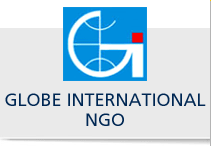INDEPENDENT MEDIA
Democratic Elections
and Media
The 3-month project
was supported by UNESCO as its programme on Promoting
freedom of expression and communication development
and sub-programme on Supporting development of communication
media.
Project aimed to support independent media
and promote self-regulation and it achieved its immediate
objectives to:
- introduce the
media owners, editors and journalists with international
standards on election coverage
- inform them on the best practices of international
media as BBC, ABC, CBS and others
2 workshops were orgainsed on 16th and 17th June 2004
at Lobby Center and involved in total 42 participants-journalists
and journalism teachers.
Workshop participants actively discussed and debated
key issues of election coverage and they raised the
following problems and challenges they face in their
work.
- State censorship is still existed even though it is
prohibited by the Media Freedom Law
- Mongolian National Radio and TV is still under the
Government control so it is impossible to be independent
- It is a reality that journalists work under pressure
of media leaders and owners
- Financial issues of election coverage are one of the
biggest problems because media owners want to generate
more income using election campaign and media serve
those who are in the power or those candidates, who
are able to pay more money.
- It is noted that there are no possibilities to follow
ethical principles due to censorship and threat of the
ruling party and oppositions
- Unfavourable defamation legislation, for example,
arrest of Erdenetuya, journalist of One Day of Mongolia,
weekly newspaper just before World Press Freedom.
- Self-censorship is very high so Mongolian journalists
cannot be brave to expose election manipulations and
cheats
- Journalists' organization is not capable to protect
journalists' rights
- It is not a secret that some journalists serve those,
who pay for them
- Election laws of Mongolia are contradictory to international
standards, for example media related provisions oblige
all the media outlets to provide balanced election coverage.
But international standards permit private print media
to openly announce their preferences during the election
campaigns
- It is not a secret that Mongolian media is biased
so hidden advertising is always in the media, particularly
in broadcast media
Publications:
The project has produced and printed 2 brochures with
goal to introduce the Mongolian journalists, media professionals,
politicians and the public with international standards
of broadcasting coverage of elections. A key focus of
democratic demand for free and fair elections has been
a need for access to television and radio. Transitional
democracy faces problems not faced by well-established
democracy in seeking to ensure the fairness of broadcast
coverage of elections campaigns.
Mongolian broadcasters lack good experiences covering
elections fairly because the national broadcaster is
still controlled by the government and there are 2 new
private broadcasters owned by high officials of the
ruling party have started functioning. That is why these
publications are useful sources and could serve as main
reference documents in future elections.
Brochures distributed to media
outlets, journalism schools, politicians, civil society
groups and workshop participants mentioned below
Brochure1
Guidelines on Covering Elections (Mongolian)
The brochure includes a comparative study of election
coverage guidelines of 10 countries produced by Globe
International's lawyers and translations of the guidelines.
It involves 5 public broadcasters and Election Authorities
of democracies such as ABC, BBC, CBS and New Zealand
Broadcasting Authorities, and 5 from transitional democracies
such as Estonia, Cambodia, Hungary, Macedonia and Moldavia.
Brochure
2 Elections and Broadcast Media (Mongolian)
Brochure includes translations of a set of Principles
on media coverage of elections and Guidelines for Election
Broadcasting in Transitional Democracies produced by
ARTICLE 19. It contains international and comparative
law, standards and jurisprudence that underpin the right
to freedom of political communication, including the
right of parties and candidates to express their views
freely through the mass media and right of the public
to hear those views. It also addresses the right of
citizens to sufficient, balanced information to enable
them to participate fully in
elections of their government. Comparative study was
carried out in 41 countries.
Brochure introduces
the journalists with the Guidelines, which address the
obligations of the governments to inform the public
and apply to public-service broadcasters- media which
are supported entirely or in part by government funds
Project conducted
evaluation survey among the public and journalists after
the completion of project activities. It was aimed at
testing public opinion how Mongolian media was balanced
and fair during the Parliamentrain Elections held in
June 27, 2004 and exposing challenges and difficulties
that Mongolian journalists face in covering elections.
-
How did Mongolian Media act during the 2004 Parliamentarian
Elections?
-
How Mongolian Journalists Covered the 2004 Parliamentarian
Elections?
Conclusion:
1. Journalists experience strong censorship while exercising
thier professional duties
2. Implementation of Media Freedom Law is not sufficient
and media freedom is strictly limited in the practice.
3. Media cannot be fair and serve the public interest
in the case if media environment is not favourable,
particularly immediate liberalisation of Mongolian Radio
and TV is important
4. Media guidelines on election coverage are urgent
need in Mongolia.
5. Journalsts need efficient short-term training on
election coverage
6. Journalists' organisation is not capable to protect
journalists' rights
Future strategy/Recommendation
Globe International
is keen to continue activities to safeguard and promote
independent media and legal reform so we recommend the
international donors to support following actions.
Recommendations
- Encourage immediate legislation
of public service broadcasting
- Conduct wide campaign against censorship
- Conduct monitoring on breaches of Media Freedom Law
and journalists' rights
- Promote drafting National Principles on Election Coverage
of broadcast media, particularly TV guidelines cooperating
with General Election Committee and political parties,
which are based on international standards
- Promote development of National Code of Ethics and
establishment of self-regulation body
- Provide short-term training for journalists on independent
journalism coverage such as debates of candidates, analytical
programmes on election platforms of political parties
and so on
|




